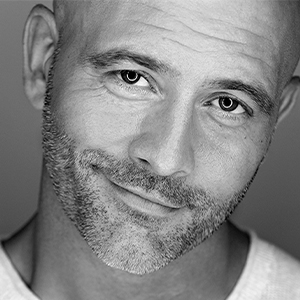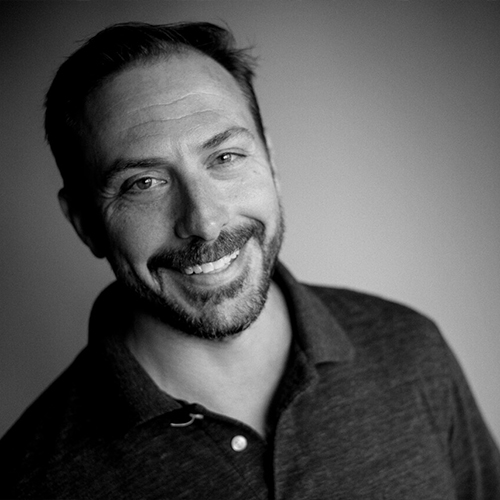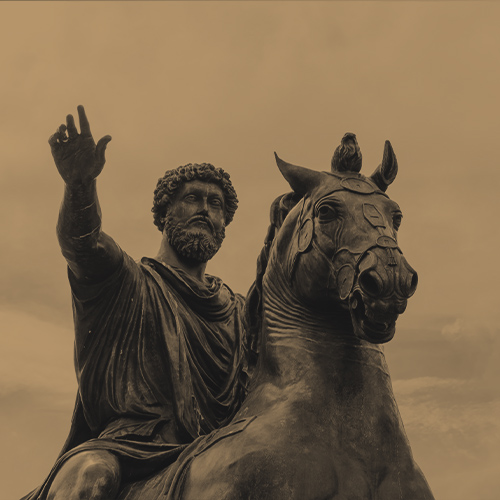In this episode Marcus Aurelius Anderson delves into the philosophies and strategies that world-renowned warriors, leaders, and entrepreneurs use to transform Adversity into success. He shares insights from over 220 episodes, featuring interviews with authors like Robert Greene, Donald Robertson, and Steven Pressfield. Marcus highlights the practical application of various philosophies, examining their strengths and limitations, while emphasizing the importance of action over mere intention. He encourages listeners to reflect on and adapt philosophies that resonate with their experiences and challenges. This episode also underscores the value of self-reflection and the necessity of fluidity in philosophical practice.
Episode Highlights:
03:20 The Essence of Philosophy
04:32 Practical Application of Philosophy
06:19 The Pitfalls of Labels and Monogamous Philosophy
07:40 Creating Your Own Philosophy
Episode Transcript:
00:02
Acta Non Verba is a show that’s raw and real, featuring hard-hitting interviews with people that live by the ethos of actions, not words. Marcus Aurelius Anderson is a TEDx speaker, best-selling author, veteran, and leadership and mindset coach.
00:17
With this show, you get to join Marcus as he goes inside the minds and experiences of the world’s most successful warriors, leaders, entrepreneurs, and experts. With each episode, you’re going to get the philosophies, concepts, tactics, and strategies these leaders use to turn adversity into victory. Live an extraordinary life based on actions, not words. Now here’s your host, Marcus Aurelius Anderson.
00:45
I’m Marcus Aurelius Anderson, and this is another installment of Acta Non Verba’s Warrior Wisdom. In these shorter solo episodes, I’ll highlight lessons from warriors past and present, and all kinds of settings from the battlefields of Italy, Greece, Japan, and the Middle East, to more modern-day warfare, including tactics seen today in business, society, and culture. I’ll also be sharing leadership lessons based on my own teachings and experiences. The reality is this. The world is a battlefield.
01:13
And to not master these lessons leaves you grossly ill-prepared for the adversity that you will inevitably face in the future. Now on to the lesson. Whether you’re a new fan or a long-time listener of Octo Non Verba, you’ve heard and learned about multiple philosophies from our over 220 episodes over the last four years. When I interviewed Robert Greene, for example, the author of 48 Laws of Power, Mastery, The
01:42
of which Master Dogen’s Zen interpretation and Zazen is the one that resonates most with both he and I, which I found intriguing. On this show, you’ve listened to countless interviews, like my most recent guest, Dr. Franklin Annis, author of the new book, Marching with Spartans, The Life and Works of Alden Paltridge, as well as the author of How to Think Like a Roman Emperor and Marcus Aurelius the Stoic Emperor, Donald Robertson. I’ve also interviewed and had a conversation with Brady Vasoli of the Grey Man Project.
02:10
and the British psychotherapist Sarut Chawla, as we explored each of their unique interpretations and applications of Stoicism, which is probably the most in-vogue philosophy today. I also had an enlightening discussion with Daneli Bonelli of the History on Fire podcast, which if you are into history, I absolutely recommend it. It is one of the top podcasts on history out there today. And we discussed our mutual admiration for the martial arts and specifically the Chinese philosophy of Taoism.
02:38
Even the legendary author Stephen Prestill’s life philosophy is based more on his process of creativity than any formally recognized philosophical school of thought. In addition to hundreds of episodes unpacking the philosophy of the world’s most successful warriors, leaders, entrepreneurs, and authors today, I’ve also done deep-dives, solo warrior wisdom episodes like this one covering Bruce Lee’s philosophy of Je Kondo, Miyamoto’s
03:06
as well as giving you the secrets to the art of war by Sun Tzu. In short, I’ve been studying, learning, and applying an eclectic collection of Eastern, Western, and martial philosophies from all over the world for the last 40 years of my existence, which leads to a question that I am often asked when I speak or lecture about philosophy. What is the best philosophy? Here’s my answer. First, a philosophy is only as useful so much as it is pragmatic.
03:33
The objective of any philosophy should be liberation and elevation, not enslavement or enforcement of dogma. Secondly, remember that a philosophy is only as good as the person using it. This means a person can claim to be a Taoist and still suffer tremendous denial before they finally accept the reality of the adversity that they must face, that a Zen practitioner can lose their focus thousands of times while sitting in meditation, and that person that claims to be a Stoic will undoubtedly lose their temper thousands of times throughout their life.
04:03
These examples simply prove that we’re all flawed humans, and that regardless of how good the intentions are, we are all still fallible. Yes, good intentions are fine, but remember, it is also said that the road to hell is paved with good intentions for a reason. In the end, it’s our actions that change the world, not simply our intentions. And it’s our philosophy that informs our beliefs, intentions, and actions. This very much reinforces the Octo-Non-Verba ethos.
04:32
Now does this mean that all philosophies are completely useless? Of course not. Just understand that they are simply tools. If you give a tool to a person that doesn’t know anything about using it skillfully, the quality and craftsmanship of that tool matters not. It’s the practitioner, not that philosophy, that makes the wisdom powerful or worthless, effective or ineffective, good or evil. Philosophy literally translates to mean the love of wisdom. We must start our study of philosophy.
04:59
by utilizing a technique found in any philosophy that’s actually worth its salt. That technique involves self-reflection. Like Socrates, we exercise self-reflection by asking ourselves questions. And probably the most important question to ask is, what is the most practical philosophy for this situation? Niccolò Machiavelli said in The Prince that the end always justifies the means, and that if we cannot be both loved and feared, it is better to simply be feared if we cannot accomplish
05:28
both of those aims. If achieving the end goal is all that matters, this will absolutely affect the philosophy that you choose to deploy and the tactics utilized. So from the aforementioned example, if you have a Machiavellian name, you’re more than happy to use a scorched earth mentality when necessary to bludgeon your enemy into submission when flattery isn’t being as effective as you would like. But there are clearly limitations to this philosophy. The Machiavellian mentality is short-sighted at best.
05:57
Yes, you may win the battle, but are you losing the war? This begs the next question we must ask, which is, at what cost? If you want to continue to cultivate friendships, relationships, and community, a scorched-earth mentality will lead to the destruction of the most important aspects of your empire, because these are the only things that build a community that’s sustainable. I would also warn against one of the most common pitfalls regarding philosophy, religion, or politics, or anything that is organized by man.
06:27
And it is this, once you seem to declare yourself as something with a label, such as I practice this or that philosophy. I’m a member of such and such religion or political party. It immediately divides the room, but not just in half. It bifurcates it into dozens of splinter groups. Yes. Half the people will not listen to you or overtly disagree with anything that you say simply because of the label that you’ve given yourself. And while you gain some allies and support from the other half,
06:55
You’ll also run into the second pitfall, competition. Specifically, competing with others that identify themselves as the same thing, the same class, the same label. They will want to one-up you or outdo you in regards to this philosophy, religion, or political affiliation that you claim to embody. Don’t believe me? How many times have you heard somebody say, well, that’s not a very Christian thing to do, or that’s not a very conservative or liberal behavior, or…
07:21
Wow, look at so-and-so who says that they’re stoic, but look at how they’re letting their emotions get the better of them. What a hypocrite. Again, this doesn’t mean that the belief is incorrect. It doesn’t mean that the philosophy is incorrect. It simply means that our application is what is inadequate. Truth is always true. It is our application that is the problem. With this idea in mind, this shows the limitations of being monogamous to only one philosophy and why it behooves us to be fluid or at least familiar with multiple philosophies.
07:50
and to be willing to combine and meld them as needed to create the best solution for the situation. The last law. In Robert Greene’s magnum opus, the 48 laws of power, the last law that he writes is law 48, which says there are no laws. You can look at any and all philosophies as if they’re a huge buffet and try the ones that you like, and then go back and load up on the ones that you like the most. But understand, there will be flavors of philosophy that you will enjoy, some that will mix well.
08:20
but many will not mix well. Yes, you may enjoy steak as well as ice cream when they’re on separate plates, but if you mix them together, you probably won’t like how they taste. This is the part of the process that helps you find your own personal application and practice of philosophy. Something that I recommend, which is also something that I write about in my first book, The Gift of Adversity, and I also lean into heavily into my new upcoming book, Octanon Verba, is to find the areas in any philosophy where they overlap.
08:47
and then lean in towards those commonalities. If we look at the similarities instead of the differences, it helps us see universal truths more quickly. If we look at only the differences instead of similarities, it only muddies the water of things that are nearly identical in all the ways that really matter to us from a philosophical perspective. Finding overarching concepts helps us see how these truths can answer the majority of our questions while allowing us the time and mental bandwidth necessary
09:17
to look more closely and think more deeply about those areas that deserve this sort of review. As I’m sure that you’ve already guessed, there is no best philosophy. Each one brings something useful to the table and has certain limitations based on the situation and our capacity to apply them skillfully. I would have you begin by simply asking, is this philosophy true? Even Buddha said, don’t believe anything that’s written or said by anyone, including me, if it doesn’t pass your own litmus test of truth.
09:47
Some of the bones of contention such as acts of violence, rape, or murder should be clear indications of where dogma is outweighing the truth of the philosophy, religion, or belief. Lastly, I’d say dig deep into the quotes and statements that strike a chord within you. Examine that person and find the roots of that philosophy. I think you’ll gain more from examining the life of Socrates or Miyamoto Musashi than simply being inspired by one of their quotes that’s been regurgitated by others on social media.
10:17
I would tell you to absorb truth irrespective of source. Have the humility to learn from everyone and keep what works for you. This echoes Bruce Lee’s idea of absorbing what is useful, discarding what is useless, and adding what is specifically your own. It’s a great mantra not only for the martial arts, but for leadership, entrepreneurship, and life. Your after action items for this lesson. For the next 30 days, ask yourself these questions daily. Number one.
10:47
What is the philosophy that resonates with you that you are adhered to in some capacity? Chances are, if you’re a follower of Octanon Verba, there’s already a philosophy that you identify with, at least to a small extent. Again, it can be any of the big three philosophies that I mentioned before, Zen, Taoism, Stoicism, but by all means, explore as many as you desire and be as eclectic in that collection as you can. That’s how you learn what may work for you or at least know which ones that you don’t want to use in the future.
11:16
Next, remind yourself, follow principles, not people. Principles are timeless, unchanging, and resolute. People are fallible and often unaware of their own fallibility. If you examine any famous philosophy closely enough, you’ll see the imperfections of the person that’s been applying it or pontificating it, which may negatively influence the wisdom that they shared in your mind. Again, no one is perfect. Don’t judge them too harshly when you find that their words are incongruent with their actions. Instead,
11:46
I would invite you to judge them in the same way that you do whenever you catch yourself being a hypocrite in regards to your own words and deeds. Finally, be aware of the repercussions of labeling yourself. Not only will identifying yourself regarding certain beliefs affect how others perceive you, it will also influence how you perceive yourself. Knowing this, be very aware of the potential advantages as well as disadvantages that this may bring. Lastly, remember, there are no laws.
12:15
No laws other than the ones that you create. This means the only philosophy that should matter to you is the one that you create from your own experiences, learnings, and applications. Pay attention to your results and adapt accordingly. Thus endeth the lesson. If you enjoyed this or any of the other 220 plus episodes of Akshannam Vrba, I highly recommend going back through the entire catalog that includes other warrior wisdom episodes like this one.
12:43
None of these episodes are behind a paywall or a Patreon. They are all available for free for now. So go check out the entire catalog right now. While you’re there, hit subscribe and tell us what you think about this episode in a review on iTunes, Spotify, or wherever you listen to Octa Nonverbal. This helps us attract more listeners and spread the Octa Nonverbal message to others. Sharing this lesson on social media and with others gives you tools and tactics that can be used in any team or company environment as well.
13:12
If you’d like to get more exclusive content and information regarding the release date of my new upcoming book, Okta Non-Verba, upcoming live events, the release of Okta Non-Verba’s apparel and more, join the Okta Non-Verba Inner Circle for free at Marcus Aurelius Anderson.com. And also be sure to check out Okta Until next time, live a life of actions and not words. Live a life of Acta Non Verba.






